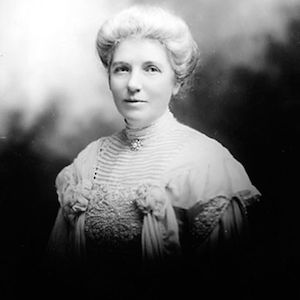 Today in 1893, New Zealand women became the first in the world to gain the right to vote, thanks in no small part to the fine lady, pictured left, Kate Sheppard.
Today in 1893, New Zealand women became the first in the world to gain the right to vote, thanks in no small part to the fine lady, pictured left, Kate Sheppard.
Katherine Wilson “Kate” Sheppard (10 March 1847 – 13 July 1934) was the most prominent member of New Zealand’s Women’s Suffrage movement and her work had a significant impact on similar movements around the world.
Ms Sheppard graces our $10 note and was born in England to Scottish parents. She was always acknowledged as an intelligent person, with a broad knowledge. She immigrated to Christchurch, New Zealand with her mother and siblings following the death of her father.
She married Walter Allen Sheppard and the couple had a son, Douglas.
In 1885, Kate Sheppard became involved in establishing the New Zealand Women’s Christian Temperance Union, part of the larger temperance movement. The Temperance Union became active in advocating the cause of women’s suffrage, and Kate herself quickly became prominent. Her views were well summed up with her statement that “all that separates, whether of race, class, creed, or sex, is inhuman, and must be overcome.”
She helped introduce the first suffrage bill in 1887, the the following year, she published a pamphlet entitled Ten Reasons Why the Women of N.Z. Should Vote. It not only laid out the reasons she felt women should be allowed to vote – she was also commended for her “dry wit and logical approach.”
It took three petitions to parliament to have the women’s suffrage bill successfully passed, granting women full voting rights. On 19 September 1893 the governor, Lord Glasgow, signed a new Electoral Act into law. At the time, the 1893 general election was less than three months away, so Ms Sheppard was busier than ever. Despite the short notice to register women voters, nearly two-thirds of women cast a vote.
The legislation helped develop New Zealand’s international image as a world leading ‘social laboratory.’ In most other democratic countries, women did not win the right to the vote until after the First World War.
Today, the idea that women could not or should not vote is incomprehensible. At the last election, 31% of our Members of Parliament were female, compared with 9% in 1981. In the early 21st century women have held each of the country’s key constitutional positions: prime minister, governor-general, speaker of the House of Representatives, attorney-general and chief justice.









Join the Discussion
Type out your comment here:
You must be logged in to post a comment.